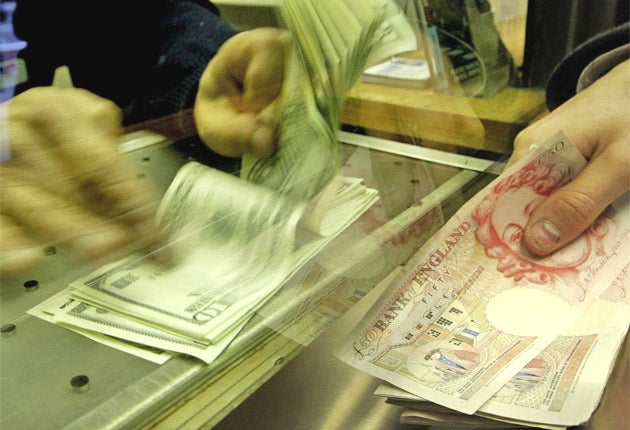Watchdog complaint over 'rip-off' currency charges

Holiday-makers are ripped off every time they take out foreign currency or spend abroad, according to a watchdog.
Consumer Focus is calling on the Office of Fair Trading to investigate potentially unwarranted and excessive currency charges. Mike O'Connor, its chief executive, has accused the travel money industry of having "a confusing array of hidden charges".
The cost of changing sterling into euros varies wildly. "Converting £500 into euros can cost from under £10 to over £30," pointed out Mr O'Connor. "This is a huge difference for essentially providing the same service."
Holiday-makers are also stung by cash withdrawal charges if they use plastic cards to buy currency. They are effectively charged for the privilege of taking money out of their own account, said Mr O'Connor.
The charges do not reflect costs. A debit card payment costs on average 9p to process and a credit card payment just 37p, yet charges for buying currency with a card are typically 1.5-2 per cent of the amount converted, up to a ceiling of £4.50.
There are also complex charges applied to cards, which typically have surcharges of up to 3 per cent on the exchange rate offered, known as exchange-rate loading.
There may also be a £4.50 charge for using foreign ATMs, as well as cash advance charges and higher interest rates for using a credit card.
The watchdog also slammed the use of misleading marketing phrases such as "0 per cent commission".
It said exchange rates already include mark-ups levied by suppliers and so are not as fee-free as implied. Meanwhile the British Bankers' Association defended the charges. "Any analysis of this market needs to take account of the costs of providing these services," a spokesman said.
Join our commenting forum
Join thought-provoking conversations, follow other Independent readers and see their replies
Comments
Bookmark popover
Removed from bookmarks